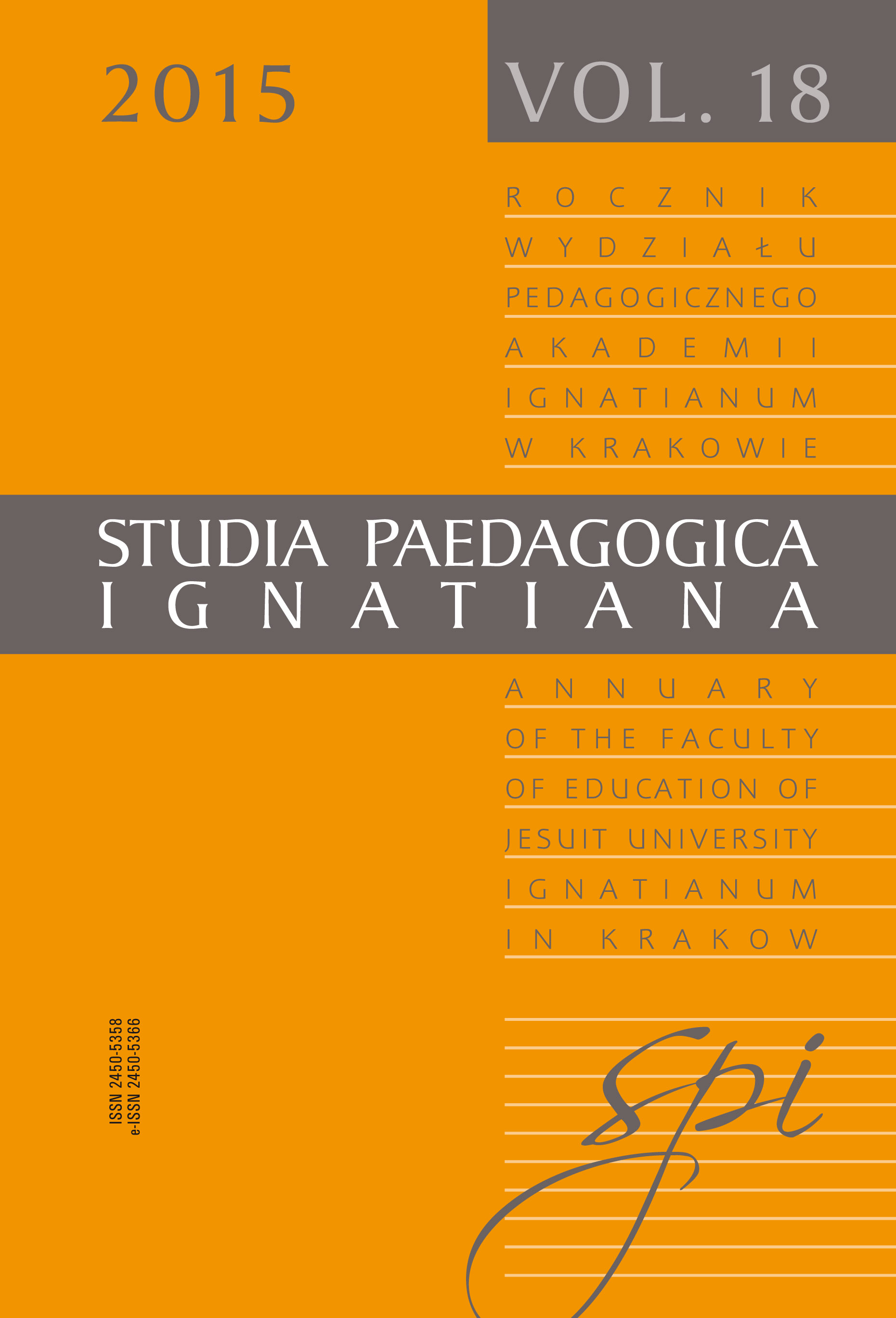Hermeneutyka prawnicza. W tekście i poza nim
DOI:
https://doi.org/10.12775/SPI.2015.004Słowa kluczowe
hermeneutyka prawnicza, hermeneutyka krytyczna, osąd, znaczenie, wspomagające orzecznictwo prawne, Paul RicoeurAbstrakt
W artykule omawiana jest hermeneutyka prawnicza, czyli znaczenie interpretacji dla prawa. Staram się wykazać, że z hermeneutyką prawniczą – i hermeneutyką w ogóle – wiążą się cztery ważkie zadania. Po pierwsze, hermeneutyka prawnicza oferuje narzędzia do bardzo wyrafinowanego odczytywania tekstu; pozwala nam to na dokładniejsze rozróżnianie tego, co w tekście funkcjonuje. Rozróżnienie to wymaga doświadczenia w hermeneutycznym akcie sądzenia, czyli umiejętności wykraczającej poza utarte i schematyczne środki, w znacznej mierze cechujące współczesną edukację. Po drugie, hermeneutyka prawnicza wymaga analizy współzależności pomiędzy znaczeniem i zastosowaniem w płaszczyźnie czasowej. Często istniejąca reguła nie może zostać automatycznie zastosowana do nowego przypadku, hermeneutyka ukazuje zaś, jak ta reguła winna być twórczo rozszerzona. Po trzecie, hermeneutyka prawnicza podkreśla znaczenie słuchania: skupienie uwagi na drugiej osobie ukazuje humanistyczne wartości prawa i prawnej interpretacji. Po czwarte, hermeneutyka prawnicza ma na celu ponownie nadać ludzki wymiar dążeniom jednostki, inaczej niż inne, bardziej redukcjonistyczne stanowiska, ograniczające aspiracje człowieka do bardziej przyziemnych wartości, np. takich, które wiążą się z gospodarką. Hermeneutykę prawniczą – i hermeneutykę w szerszym rozumieniu – można traktować jako opowiedzenie się za sensem.
Bibliografia
Babbitt v. Sweet Home Chapter of Communities, 515 U.S. 687 (1995).
Derrida J., Of Grammatology, transl. G.C. Spivak, Johns Hopkins University Press, Baltimore 1974.
Gadamer H.G., Truth and Method, transl. J. Weinsheimer and D.G. Marshall, 2nd revised edition, Crossroad, New York 1992.
Gier P., “Emerging Med-Mal Strategy: ‘I’m Sorry’”, National Law Journal Online, July 14, 2006. Available at: .
Greely H.T., “Law and the Revolution in Neuroscience”, Akron Law Review 2009, vol. 42.
Jones O.D., “Evolutionary Analysis in Law”, North Carolina Law Review 1997, vol. 75.
Kaplan D.M., Ricoeur’s Critical Theory, SUNY Press, Albany 2003.
Kennedy v. Louisiana, 554 U.S. 407, 419 (2008).
Mootz III F.J., “Hermeneutics and Law”, in: The Blackwell Companion to Hermeneutics, eds. N. Keane, C. Lawn, Wiley-Blackwell, Hoboken, N.J. 2016.
Kahneman D., Thinking, Fast and Slow, Farrar, Straus and Giroux, New York 2011.
Lattman P., Lobb A., “Victims’ Speeches in Court Influenced Judge’s Ruling”, Wall Street Journal, June 30, 2009. Available at: <http://www.wsj.com/articles/SB124632127336071155>.
Posner R.A., Economic Analysis of Law, 9th edition, Wolters Kluwer Law & Business, New York 2014.
Rakove J.N., Original Meanings, Alfred A. Knopf, New York 1996.
Restorative Justice in Practice, eds. S.M. Murphy, M.P. Seng, Vandeplas Publishing, Lake Mary, FL 2015.
Ricoeur P., Time and Narrative, vol. 1, transl. K. McLaughlin, D. Pellauer, University of Chicago Press, Chicago 1984.
Ricoeur P., Lectures on Ideology and Utopia, ed. G.H. Taylor, Columbia University Press, New York 1986.
Ricoeur P., From Text to Action, transl. K. Blamey and J.B. Thompson, Northwestern University Press, Evanston, IL 1991.
Ricoeur P., “Love and Justice”, in: Figuring the Sacred, ed. M.I. Wallace, transl. D. Pellauer, Fortress Press, Minneapolis 1995.
Ricoeur P., The Just, transl. D. Pellauer, University of Chicago Press, Chicago 2000.
Ricoeur P., Memory, History, Forgetting, transl. K. Blamey, D. Pellauer, University of Chicago Press, Chicago 2004.
Ricoeur P., The Course of Recognition, transl. D. Pellauer, Harvard University Press, Cambridge, MA 2005.
Roper v. Simmons, 543 U.S. 551 (2005).
Scalia A., A Matter of Interpretation: Federal Courts and the Federal Law, Princeton University Press, Princeton 1997.
Taylor G.H., “Law and Creativity”, in: On Philosophy in American Law, ed. F.J. Mootz III, Cambridge University Press, Cambridge 2009.
Taylor G.H., Ricoeur and the Limits of Law? [forthcoming].
The Truth and Reconciliation Commission. Available at: .
Pobrania
Opublikowane
Jak cytować
Numer
Dział
Licencja
Autor zgłaszając swój artykuł oświadcza, że:
jest Autorem artykułu (zwanego dalej Utworem) i:
- przysługują mu wyłączne i nieograniczone prawa autorskie do Utworu,
- jest uprawniony/a do rozporządzania prawami autorskimi do Utworu.
Udziela Uniwersytetowi Ignatianum w Krakowie nieodpłatnej, niewyłącznej, nieograniczonej terytorialnie licencji do korzystania z Utworu na następujących polach eksploatacji:
- utrwalania utworu w formie papierowej, a także na nośniku cyfrowym lub magnetycznym;
- zwielokrotnienia utworu dowolną techniką, bez ograniczenia ilości wydań i liczby egzemplarzy;
- rozpowszechniania utworu i jego zwielokrotnionych egzemplarzy na jakimkolwiek nośniku, w tym wprowadzenia do obrotu, sprzedaży, użyczenia, najmu;
- wprowadzenia utworu do pamięci komputera;
- rozpowszechniania utworu w sieciach informatycznych, w tym w sieci Internet;
- publicznego wykonania, wystawienia, wyświetlenia, odtworzenia oraz nadawania i reemitowania, a także publicznego udostępniania utworu w taki sposób, aby każdy mógł mieć do niego dostęp w miejscu i czasie przez siebie wybranym;
- w zakresie praw zależnych do Utworu, obejmujących w szczególności prawo do dokonania koniecznych zmian w Utworze, wynikających z opracowania redakcyjnego i metodycznego, a także do dokonania tłumaczenia Utworu na języki obce.
Udzielenie licencji następuje z chwilą przekazania Utworu na rzecz Uniwersytetowi Ignatianum w Krakowie. Uniwersytet Ignatianum w Krakowie jest uprawniony do udzielania dalszych sublicencji do Utworu, w zakresie udzielonego prawa. Licencja jest ograniczona czasowo i zostaje udzielona na okres 15 lat, licząc od daty jej udzielenia.
Polityka prywatności
Statystyki
Liczba wyświetleń i pobrań: 719
Liczba cytowań: 0



